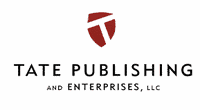In a landmark ruling, book publishers have secured a significant legal victory against the Internet Archive (IA), marking a pivotal moment in the ongoing war against copyright violators. As TorrentFreak reported, the decision, handed down by a New York federal court, underscores the critical importance of protecting intellectual property rights in the digital age.
The dispute centered around IA’s contentious practice of controlled digital lending (CDL), which publishers alleged amounted to blatant copyright infringement. Unlike traditional library lending models or licensed agreements, IA’s self-scanning service raised serious concerns among publishers regarding the unauthorized reproduction and distribution of copyrighted works.
The court’s verdict affirmed publishers’ claims, holding IA liable for copyright infringement and effectively halting its self-scanning library operations, at least concerning books from the publishers involved in the lawsuit. This ruling serves as a stern reminder that noble intentions must not overshadow the paramount need to respect and uphold copyright laws.
Despite IA’s mission to preserve digital history and provide broader access to knowledge, its actions have provoked intense scrutiny and legal challenges. The court’s decision reinforces the notion that even well-meaning initiatives must operate within the bounds of legal frameworks designed to safeguard creators’ rights and foster innovation.
The legal battle between publishers and IA garnered widespread attention, drawing support from various quarters. Notably, industry groups such as the Recording Industry Association of America (RIAA) and Motion Picture Association (MPA) emphasized the broader implications of IA’s activities, likening them to past instances of digital piracy that severely impacted creative industries.
Moreover, copyright experts, scholars, and former government officials rallied behind publishers, stressing the importance of preserving incentives for content creation and dissemination. Their collective voice underscored the fundamental principle that fair use must not serve as a pretext for unchecked exploitation of copyrighted works.
Additionally, international trade groups raised concerns about IA’s potential role in fueling artificial intelligence (AI) development through the unauthorized digitization of books. The convergence of copyright infringement and AI training further underscored the multifaceted challenges posed by IA’s operations.
In light of these developments, the legal landscape surrounding digital lending and preservation efforts remains fraught with complexity. While IA’s objectives may align with noble intentions, adherence to copyright laws and respect for creators’ rights must remain paramount.
As the appeal process unfolds, the outcome will undoubtedly shape the future trajectory of digital archiving and access initiatives. Publishers’ victory in this crucial battle signals a resounding affirmation of the value of intellectual property rights in fostering a vibrant and sustainable creative ecosystem. However, the broader war against copyright violators persists, underscoring the ongoing need for vigilance and concerted efforts to safeguard the integrity of creative works in the digital realm.
With a keen interest in tech, I make it a point to keep myself updated on the latest developments in technology and gadgets. That includes smartphones or tablet devices but stretches to even AI and self-driven automobiles, the latter being my latest fad. Besides writing, I like watching videos, reading, listening to music, or experimenting with different recipes. The motion picture is another aspect that interests me a lot, and I'll likely make a film sometime in the future.

